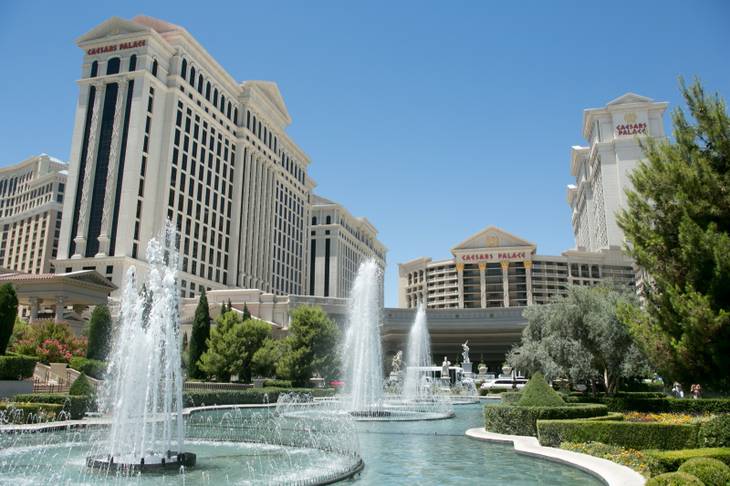Overwhelmed with debt and seeking a way out from under it, Caesars Entertainment Corp. floated a plan that would have turned its most debt-heavy division into a real estate investment trust divided into two companies — one to own the casinos and hotels, and one to rent and manage them.
The plan was first proposed to creditors Oct. 28, and after a creditor walked away from talks and terminated its nondisclosure agreement with Caesars, the company revealed the proposal in a Securities and Exchange Commission filing Wednesday afternoon. It was the second time a creditor has walked away from discussions since the negotiations began in October.
Caesars has $22.8 billion in long-term debt and lost $908 million from July to September. The company started laying off several hundred of its 68,000 employees worldwide across all divisions this month.
The division with the most debt, Caesars Entertainment Operating Co., owns and operates Caesars Palace on the Las Vegas Strip, two of its remaining Atlantic City properties and other regional casinos.
The company has been trying to shape up its finances in recent years by spinning off divisions and dividing its casinos, trademarks and businesses among them.
The Las Vegas-based company said in the filing that it continues to make proposals to remaining creditors.
It said creditors owed first — senior secured credit holders and first-lien bond holders — would have received 100 percent and 93.8 percent of what they're owed, respectively. Those next in line would have received a minimal amount unless they voted together to endorse the company's plan, according to filing.
Alex Bumazhny with Fitch Ratings said the filing made sense since the aim would be to increase the value of the company's operating division. It's something other casino companies have been pursuing, including Penn National Gaming Inc. and Pinnacle Entertainment Inc.
He said the proposal still wouldn't steer Caesars away from inevitable bankruptcy since the level of debt has risen so high while the company continues to burn through cash.
"Now the only question is who gets what," he said of Caesars' creditors. Turning the debt-heavy division into a real estate investment trust would boost the value of its assets, allowing the company to offer more to its creditors, be it in cash or new debt, he said.
Caesars stock jumped 30 percent from the market's close Wednesday to a high of $18.69 per share in afterhours trading.
